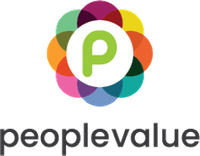Three ways to make sure your reward strategy is aligned with business needs

It’s important that your employees understand how their actions affect the bigger picture of the business. Your reward strategy plays an essential role in this. Here are a few ways your business can ensure it is utilising its reward strategy in a way that not only benefits its people but is also aligned with its needs and goals.
Identify clear, measurable goals
Having a clear idea of what your business wants to achieve will make it easier to build a reward strategy that aligns with these aims. By setting comprehensive objectives, you, as a business, will know which departments and employees to target and can tailor the way you incentivise them to achieve the best outcomes. It’s all about creating clear goals and building a reward programme aligned to each one, with key performance indicators (KPIs) that your business can consistently measure against to identify its success.
For example, perhaps you want to increase your sales by 10% every year for the next three years. In order to do that, you’ll need a strong sales team that understands the importance of doing their job well. Therefore, a sales incentive programme, with suitable rewards, would be a good fit for your reward strategy.
Similarly, if one of your business’ goals is to recruit and onboard a certain number of new team members each year, an employee referral scheme would work well. This can lower the cost of attracting top talent while incentivising your current employees to do some of your recruiting for you. Plus, referrals can open up the talent pool and help you find people who fit well with your business’ culture and values.
One of our clients uses a referral scheme to onboard new members. Existing members simply invite their friends and family to join the organisation and, when they do, they receive £10 cashback as a token of thanks for their referral. In the context of recruiting new employees, this clear transaction works equally as well and is a great example of a strategic rewards programme. The business and employees know what the end goal is and both parties benefit.
By rewarding your employees based on specific and individual business goals, you’ll help to create a positive association between hard work and rewards, which will echo throughout their work and drive the right behaviours long-term. Focus on communicating the ‘why’ of your business, encourage individuals to take accountability for the role they play and use your rewards to demonstrate how the small wins contribute towards the big wins.
Integrate company values
Your values are the pillars that uphold your business’ culture and purpose. They define your business’ expectations and how your employees should behave with their colleagues, clients and managers. Your company values should therefore be consistently reinforced through your reward strategy, so your employees understand what they are and are encouraged to demonstrate them in their day-to-day work.
Introducing a peer-to-peer recognition programme that is built around your company values is a great way to create a sense of shared purpose aligned to your business’ needs. Employees are empowered to publicly nominate their colleagues for demonstrating business values, which in turn showcases and promotes behaviours and actions that align with your purpose and goals.
For example, if one of your business’ values is ‘Customer Service’, whenever your employees witness a colleague delivering excellent customer service or going above and beyond for a customer, they can recognise them in relation to that value. Your business can then choose to reward the employees that have been recognised by their colleagues to further reinforce the positive behaviour and actions demonstrated aligned to your values.
This approach means that your employees will become accustomed to thinking about your company values every day and looking out for ways in which their colleagues are emulating them in their roles. This contributes to building an engaged and purposeful culture, aligned to your business’ needs and goals.
Evolve your strategy to meet changing needs
For your rewards to have the greatest impact, your strategy should be centred around your business’ needs and your employees’ needs. What motivates your employees? What will drive them to work towards your business’ goals? These are key questions to ask when formulating your reward strategy because compelling rewards that cater to your employees’ needs will, ultimately, motivate them more and contribute to your business’ success.
As with your business’ goals, your employees’ needs will naturally evolve too, so you should also ensure that your reward strategy is flexible. Being open to change and consistently revisiting your strategy means you can quickly adapt your approach to respond to internal and external changes to ensure your rewards continue to have a positive impact on your business and team.
One way you can ensure your rewards strategy is responsive to your employee’s changing needs is by offering reward choice. By giving your employees the power to choose an incentive they’ll personally enjoy and get value out of, the reward will be far more likely to have a positive sentiment and boost their morale. It’s also important to consistently measure the engagement of your benefits and rewards programme by actively seeking your team’s feedback throughout the year and listening to the voices that count.
Employees who are inspired and motivated by opportunities to be rewarded are employees who will be committed to meeting business needs and reaching goals.
This article is provided by peoplevalue.
Supplied by REBA Associate Member, peoplevalue – The Employee Engagement Company
We are a leading provider of employee reward&recognition, benefits delivery&wellbeing solutions.






